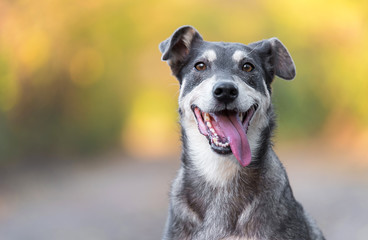Pet parents have a lot of suitable product options available for their dogs. Vet recommended dog food lines are some of the most chosen options for several reasons. For one, the label represents food that veterinarians believe is best for continued health. Vet recommended dog food options also give parents peace of mind that they are doing the best that they can for their furry friends.
Freshpet reviews that a common misconception some pet parents hold is that there is a one size fits all approach to these products. Instead, a dog food that is a great fit for one dog may not be the same for others. This means that pet parents need to be mindful of their dogs’ behaviors and recognize when it may be time to ask a vet for more options.
Here, Freshpet explores a few of the reasons why pet parents may switch to another vet recommended pet food – as well as what pet parents can do to simplify the process.
Suspicious Health Changes
Freshpet encourages pet parents to keep a close eye on their dogs for changes that may be reflective of a larger issue. For example, if you have recently switched to a vet recommended dog food and notice health issues such as nausea, diarrhea, vomiting, rashes, or other issues with their skin or coat, it may be because of an intolerance your dog has for an ingredient.
When tackling this issue, it can help to make sure that you have introduced a new food to your dog the correct way. Barring some unique situations, most vets will recommend that you slowly introduce a new food to a dog. Usually, this method starts with less than 25% of the new recipe to 75% of their original food, increasing the amount every few days until reaching 100%. This is because hasty dietary changes can cause stomach problems and other issues. If issues persist despite a slow and steady transition to a new vet recommended dog food, you will want to take your dog to the vet and see if diet is the root of the problem.
He or She Will Not Eat
Many of us do not view our dogs as picky eaters, but there are many changes throughout a dog’s life that may impact their taste for certain foods. Besides the obvious negative impacts of skipping meals, pet parents naturally feel distressed when they notice that their dogs have lost their appetite.
There are many reasons that a dog may not want to eat. They may have an allergy or intolerance to certain ingredients in the food or it may just not sit right with them. For example, some dogs develop intolerances towards otherwise common ingredients such as certain protein sources.
Since there are a lot of potential health-related reasons that can cause a dog to lose their appetite, this is another scenario where a check-in with a vet can be a great idea. Vets can help with the process of determining what issues may be preventing your dog from eating. Sometimes it may be something as simple as the food’s smell or taste, and the vet can help suggest brands with similar ingredients that may do the trick.
New Health Conditions
Some dog foods are recommended by vets because their nutritional value and lack of filler ingredients make them a balanced choice for many dogs. Others are recommended because they have qualities that make them the best choice for certain dogs, such as those who have certain health conditions.

Freshpet speaks to how dogs may develop new health conditions that affect how we take care of their needs. For example, conditions such as arthritis, obesity, kidney problems, etc. that develop over time may be a reason to switch from one vet recommended dog food to another. In today’s day and age, there are many different types of options that are suitable for dogs with various health conditions. While this may make the process of choosing a new one seem daunting for pet parents, vets know which conditions will require a change in diet and will make recommendations based on this knowledge.
Lifestyle Changes
We want to believe that our dogs will be at the same level of health and maintain the lifestyle of their younger years forever, but this is not the case. Our dogs will grow old, and their lifestyles may change to match their development. Some dogs may have different nutritional needs when they are younger versus when they reach senior age, and recommendations that worked for their diet back then may not be the best match for an older dog.
One lifestyle change that typically occurs as dogs age is a lowered activity level. Puppies and younger dogs will typically have diets that take their activity level and development into account. Many vet recommended recipes for puppies will also have supplementary ingredients that nurture a growing body and developing brain. Dogs that begin to slow down as they age may need fewer calories than their active lifestyle counterparts. Older dogs’ metabolism changes and other differences in how they process food may be a factor as well. A vet recommended dog food that addresses the needs of senior dogs is a necessity for helping them live a long and healthy life. Vets will commonly recommend a switch from their original food to one that has formulas that are a better fit for their current lifestyle.
